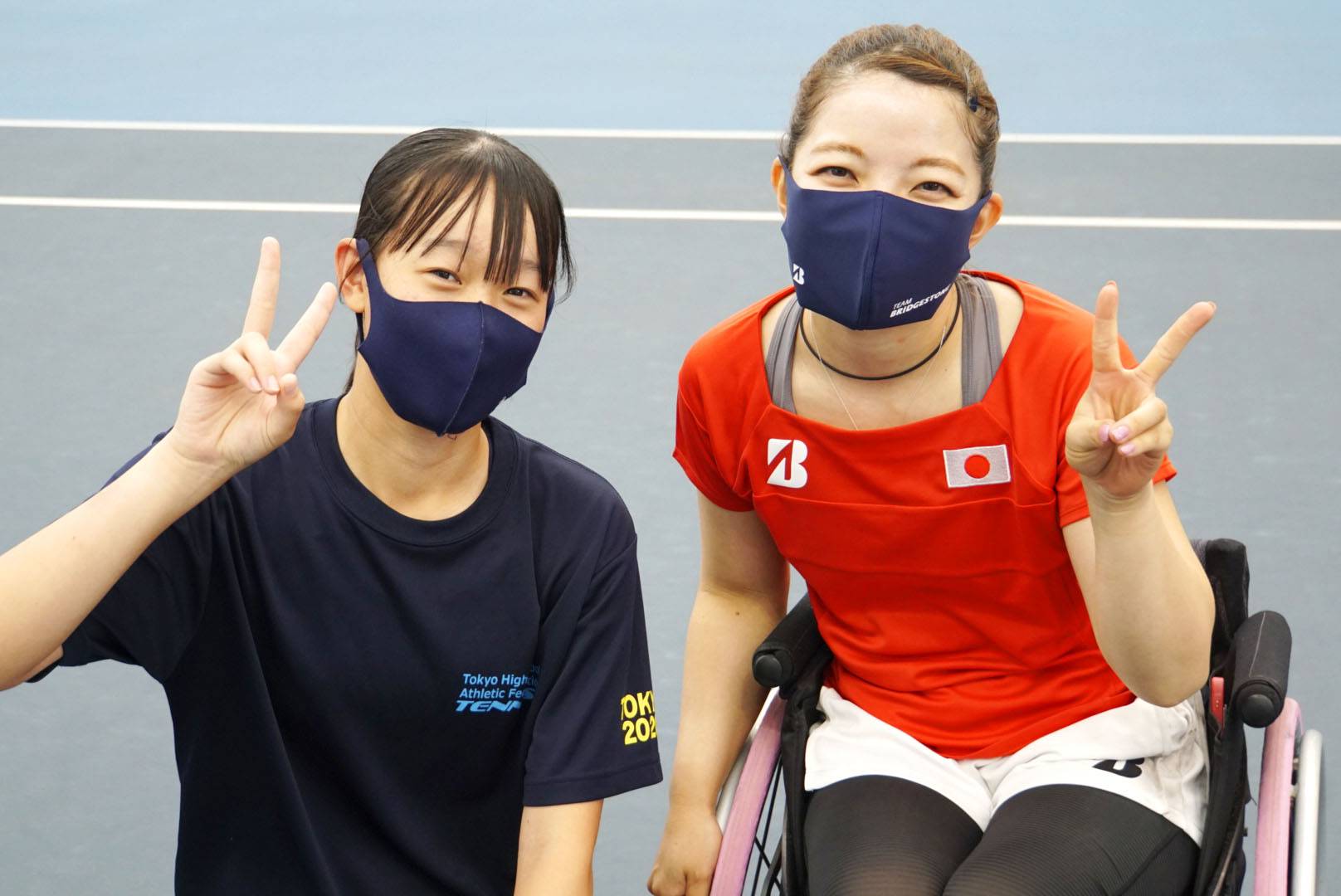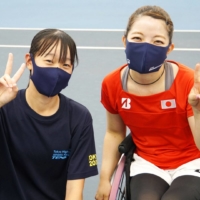On the Tokyo Paralympic tennis courts over the next two weeks, 16-year-old Airi Onuma will not be hitting balls, but chasing them.
As a ball girl during the wheelchair tennis competition, Onuma's role is key in ensuring the matches go like clockwork with players getting what they need, whether it be balls, towels or whatever else, quickly and efficiently.
She is required to not only understand the game but to read it.
Often overlooked and unseen in the corners of the court and at the net, tennis ball girls and boys play an integral role in ensuring that tournaments run smoothly. They have one of the most visible jobs in tennis, but they are at their best when they are not noticed.
If the court does not have a roof they are out in the hot sun all day. They chase down balls across the court, toss them to players, hand out towels and water, and hold an umbrella over participants to provide shade during changeovers.
Ball people need to be fast runners, have good hand-eye coordination, and be able to stand statue-still during points. They need to do their job while cognizant of not being disruptive to players' rhythms and routines.
They also need to have quick reactions to avoid balls hit in their direction, some at extremely high velocity.
Onuma is a volunteer at the Paralympics but being paid is not a priority when she has perks like a great spot to watch the on-court action and the rewarding responsibility of playing a part in wheelchair tennis's biggest moments at the Games while interacting with the players along the way.
Wheelchair tennis competitions got underway Friday at Ariake Tennis Park. Medal events will be held between Sept. 1 and Sept. 4.
Onuma is a sophomore at Fujimi Junior and Senior High School in Tokyo. Manami Tanaka, who graduated from the same school, is representing Japan in the women's singles event in wheelchair tennis.
Tanaka, 25, took up wheelchair tennis in high school after she slipped and fell on ice-covered stairs outside her home, a freak accident that severely injured her spine and left her paralyzed from the waist down.
When she returned to school in her wheelchair, her club supervisor Hirotaka Nakajima supported her tennis comeback, using a roller to fix wheelchair tire marks in the schoolyard. The school installed accessible restrooms and ramps to make her daily life less difficult.
Onuma, who now captains the school tennis club, has been practicing her ball rolling and throwing skills since she was selected for the prestigious on-court job in the spring of last year.
Ball girls and boys strive for perfection, but it is not always achieved, sometimes leading to funny incidents or moments in which the game is impacted.
"My heart was pounding from nervousness on the first day," said Onuma, who worked as a ball girl for seven days during the Olympics and assisted Tanaka in training games before the start of the Paralympics.
"I'm really grateful because she takes her job seriously," Tanaka said.
"It's encouraging that a student from my school is volunteering at the Games," she said.
For Onuma, chasing balls at the Paralympics is serious business. It is the closest she can get to being in the tournament without actually playing. She will be assigned a court for a match, and when she gets there, she will approach her summer job as a professional.
"If it's a match of a player I know, I might secretly wish for them to do well, but no matter who I'm supporting I'll do my very best."




